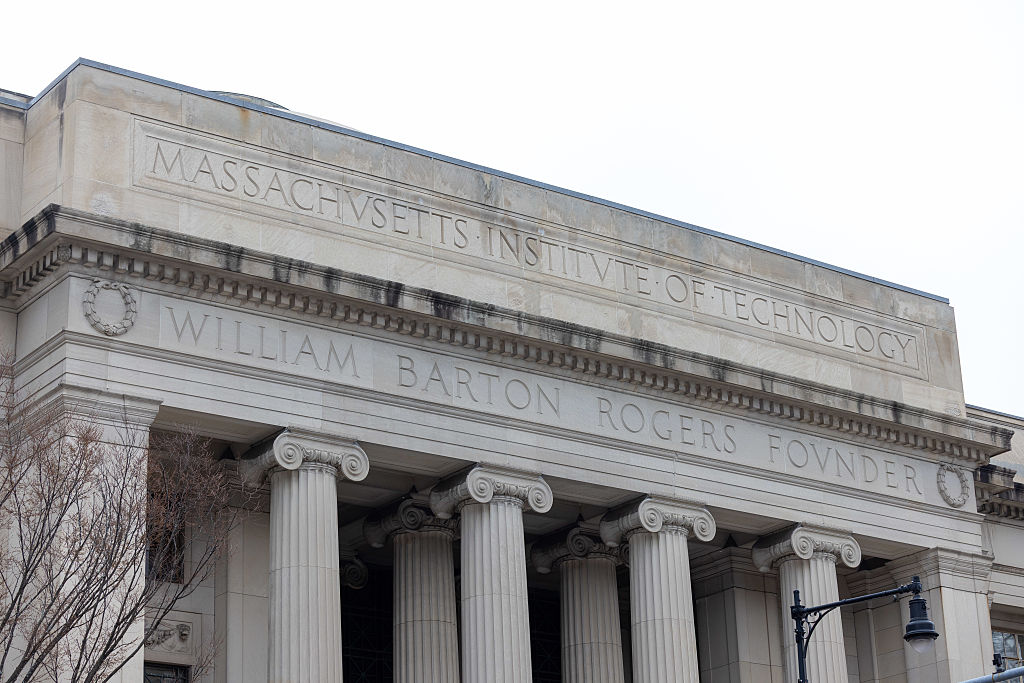MIT Rejects Trump Admin’s Compact For Preferential Funding
MIT Rejects Trump Administration’s Compact For Preferential Funding

The Trump administration’s most frequent targets during this second term have been higher education institutions.
From freezing funds to executive orders banning diversity, equity, and inclusion (DEI) programs in publicly funded universities, President Donald Trump has repeatedly tried to shape higher education in his own, warped image. Earlier this month, the Trump administration sent a proposal to nine colleges and universities offering preferential funding if they agreed to implement Trump’s agenda. On Friday, the Massachusetts Institute of Technology (MIT) was the first to reject the proposal outright.
According to the New York Times, the Trump administration’s “Compact for Academic Excellence in Higher Education” mandates that selected schools cap international student enrollment, freeze tuition for five years, and ban anything that would “belittle” conservative ideas. In exchange, the Trump administration would give the schools a “competitive advantage” when it comes to federal grants and invitations to the White House.
MIT President Sally Kornbluth released a statement on Friday explaining why the school was rejecting the compact. Kornbluth said that MIT’s institutional values already “meet or exceed many standards” outlined in the compact. When it comes to free expression, Kornbluth acknowledged “we must hear facts and opinions we don’t like – and engage respectfully with those with whom we disagree.”
“In our view, America’s leadership in science and innovation depends on independent thinking and open competition for excellence. In that free marketplace of ideas, the people of MIT gladly compete with the very best, without preferences,” Kornbluth wrote. “Therefore, with respect, we cannot support the proposed approach to addressing the issues facing higher education.”
White House spokeswoman Liz Huston released a statement saying, “Any university that refuses this once-in-a-lifetime opportunity to transform higher education isn’t serving its students or their parents — they’re bowing to radical, left-wing bureaucrats.
“The best science can’t thrive in institutions that have abandoned merit, free inquiry, and the pursuit of truth,” Huston added. “President Trump encourages universities to join us in restoring academic excellence and common-sense policies.”
I actually agree with Huston. The best science can’t thrive in institutions that abandon free inquiry, which is exactly what the Trump administration was asking these schools to do. What exactly does “belittling conservative ideas” look like? Considering the Trump administration has a track record of disregarding science for whatever crackpot conspiracy theory most aligns with their views, it could make it hard for professors in medical fields to accurately do their job without upsetting conservatives.
The compact was also sent to the University of Arizona, the University of Southern California, Dartmouth College, Brown University, the University of Virginia, Vanderbilt University, the University of Pennsylvania, and the University of Texas, Austin. No explanation was given as to why these nine schools were selected.
While officials at Dartmouth and the University of Pennsylvania haven’t outright rejected the compact, they have expressed a mixture of concern and disinterest about what’s being asked in the proposal.
“I am deeply committed to Dartmouth’s academic mission and values and will always defend our fierce independence,” Dartmouth’s president, Sian Leah Beilock, wrote last week. “You have often heard me say that higher education is not perfect and that we can do better. At the same time, we will never compromise our academic freedom and our ability to govern ourselves.”
“Penn seeks no special consideration,” J. Larry Jameson, Penn’s president, said in a message on Sunday. “We strive to be supported based on the excellence of our work, our scholars and students, and the programs and services we provide to our neighbors and to the world.”
Unsurprisingly, the school that’s been most enthusiastic about the compact is the University of Texas, Austin. Texas already has several laws on the books that ban DEI initiatives in schools and dictate what educators can and can’t teach. Kevin Eltife, a former Republican lawmaker turned chair of the University of Texas’ school board, has said he was honored that the Austin campus was chosen by the Trump administration.
“We enthusiastically look forward to engaging with university officials and reviewing the compact immediately,” Eltife said in a statement last week.
SEE ALSO:
Brown Kills DEI Programs, Regains $50M In Federal Funding
Trump Memo Doubles Down On Anti-DEI Requirements For Federal Funding
Trump Administration Ordered To Restore $500M In UCLA Funding
MIT Becomes Latest University To Back Away From DEI Initiatives
MIT Rejects Trump Administration’s Compact For Preferential Funding was originally published on newsone.com








